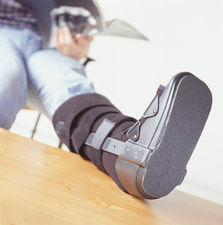
Here are three of the most common mistakes that injured persons make after the accident that can substantially reduce or even jeopardize the value of their personal injury case:
1. Waiting for too long to treat after your injury incident. Few things cast more doubt on the severity of your injuries in the eyes of the insurance companies / opposing counsel than large gaps in treatment. This makes sense. After all, the other side is only entitled to doubt how much pain you are suffering from if you were not eager to get help soon after sustaining the injury or if you didn’t treat consistently. Thus, it’s not a good idea to be “tough” after serious accident and decline ambulance services and emergency room treatment if you experience pain.
2. Telling the insurance company adjuster that you weren’t seriously injured. It is almost always the case that the person who is injured in an accident does not experience pain immediately after the impact due to adrenaline rush and other factors. Much of the pain and discomfort in neck, back and other parts of the body appears 24 hour after the accident or even later. Some of the serious symptoms are not noticed until several days after the incident or even longer.
Thus, you should not rush to inform your insurance company about what your exact injuries were shortly after the accident because you might just not know it. You are much better of generally describing the pain that you are experiencing and reminding the adjuster that you are not sure what your injuries are as you didn’t undergo a full medical evaluation yet. The claim adjuster might be pressuring you into describing your injuries and pinning you down to your words, so that later it will be harder for you to add new facts or new symptoms. However, you should not give in to that often unethical pressure. There is nothing wrong with answering the “what hurts?” questions with “I don’t know yet” or “I am not sure.”
3. Exaggerating or lying to your attorney. I met clients who would hide the fact that they had prior injuries and accidents until the other side found out about their medical past and used it to weaken our case in a way that they wouldn't be able to otherwise. I have been sent video tapes that captured my client working at a physically demanding job while claiming that he was severally injured, unable to perform any work and was unemployed.
You can be sure that it will be an uncomfortable situation for a lawyer to find out a certain fact about his client from the opposing counsel, and in most cases it’s actually an embarrassing discovery that can significantly reduce the values of the injury case, casting serious doubt on the injured person’s credibility, honesty and ability to make the right impression on the judge / jury at trial. This is why one of the golden deposition and trial testimony rules is this: if you don’t remember something you are asked about, simply say so: “I don’t remember.” This type of answer is much better than providing incorrect information, whether you do it innocently or on purpose.
 RSS Feed
RSS Feed
